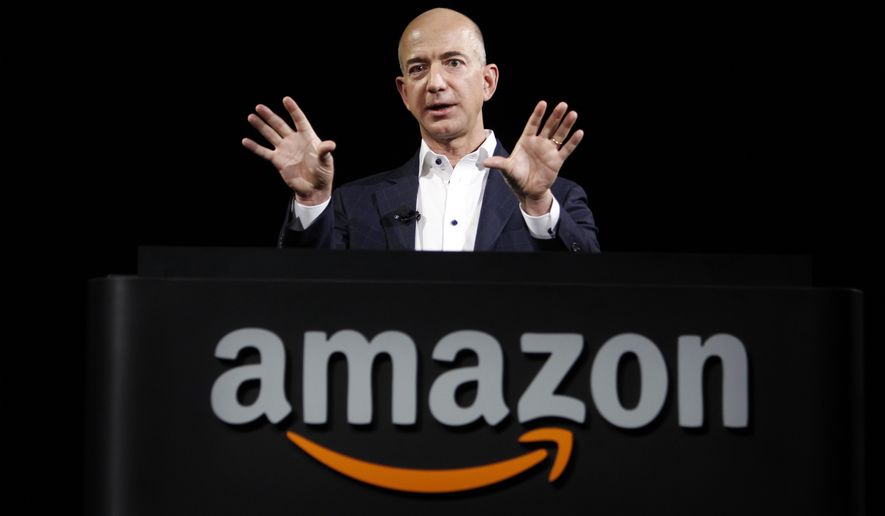The Southern Poverty Law Center has plenty of critics bemoaning its fall from venerable civil-rights champion to leftist fundraising machine, but apparently not in the tech industry.
The Alabama-based legal group has watched its influence soar as the go-to consultant on “hate” for top tech firms, including Amazon, Spotify, Lyft and Google-owned YouTube, in the aftermath of the August white-supremacist rally in Charlottesville, Virginia.
Those alliances have both astounded and alarmed conservatives who fear that the center’s hotly contested “hate map” is being wielded to deny platforms to mainstream right-of-center groups and viewpoints.
Jim Campbell, senior attorney with the Alliance Defending Freedom, has already seen it happen. The conservative non-profit was floored after being removed last month from AmazonSmile’s list of charities over its status as an “SPLC Designated Hate Group.”
“We rely on the Southern Poverty Law Center to determine which charities are in certain ineligible categories,” Amazon told the ADF in response to a query. “You have been excluded from the AmazonSmile program because the Southern Poverty Law Center lists Alliance Defending Freedom in an ineligible category.”
What frustrates conservatives is that tech companies are accepting such designations seemingly without question even though the SPLC has long been accused of juicing its prodigious fundraising through fear-mongering.
“It’s important to know that the SPLC is not a neutral watchdog organization,” said Mr. Campbell. “It’s very clearly an openly partisan leftist group that puts a lot of people on the list that simply have good-faith disagreements with the way the SPLC sees policy situations.”
Others are less diplomatic. Fox News commentator Tucker Carlson called the center a “thoroughly discredited left-wing group” after the Daily Caller reported in February that YouTube had partnered with the SPLC to police content on its platform.
“Today the center smears people that don’t deserve to be smeared,” said Fox commentator John Stossel in a January video for Reason, adding, “It’s now a left-wing, money-grabbing slander machine.”
After Spotify joined forces last week with the SPLC to target “hate content,” the Family Research Council said the music-streaming service “should be aware that they are partnering with an organization that was connected in federal court to domestic terrorism.”
In 2012, Floyd Lee Corkins shot an FRC security guard after seeing the group listed as an anti-LGBT hate group on the center’s website.
“Spotify should be aware that in partnering with SPLC, it is teaming up with a political defamation machine that has little respect for freedom of thought and expression,” said Lt. Gen. (Ret.) Jerry Boykin, FRC executive vice president.
Defenders have accused conservatives of attempting to cover up their own “hateful values” by attacking the center and “painting themselves as innocent victims and the SPLC as a boogeyman,” as ThinkProgress’s Zack Ford put it.
“The Southern Poverty Law Center is greatly concerned about the spread of white supremacist propaganda online and believe that tech companies should enforce their own terms and service agreements,” Heidi Beirich, director of the SPLC’s Intelligence Project, told ThinkProgress.
The criticism doesn’t just come from the right. Journalists have been reporting for years on the SPLC’s fat endowment, high salaries and extensive fundraising operation, notably with Ken Silverstein’s groundbreaking 2000 report in Harper’s on how the center “profits from intolerance.”
In 2009, left-wing journalists Jeffrey St. Clair and Alexander Cockburn blasted SPLC executive director Morris Dees as the “arch-salesman of hate-mongering,” while the Atlantic slammed the center’s 2016 decision to list British anti-terrorism activist Maajid Nawaz as an “anti-Muslim extremist.”
“Has a civil rights stalwart lost its way?” asked Politico in a 2017 article featuring photos of the center’s “sleek six-story headquarters” in Montgomery.
None of that has hurt the center’s credibility with Silicon Valley, a relationship that took off after the “Unite the Right” rally in Charlottesville, which left one dead.
Days later, Apple donated $1 million to the center and agreed to match employee donations, while other companies cracked down on white-supremacist groups by closing their accounts and shutting off their access.
In a February report, the SPLC said “Charlottesville broke the dam,” finally convincing tech companies to heed the calls to make their platforms less hospitable to extremist groups.
“The post-Charlottesville moment has provided good examples of companies taking action where they’ve formerly been reluctant to do so, and they have been largely rewarded for it,” said the report. “They should go further.”
Critics fear that the tech industry has overcompensated by embracing the SPLC and its “hate map,” which has grown in the last year from 917 to 954 organizations ranging from the KKK to mainstream conservative outfits like the Family Research Council.
When the Media Research Center’s Brent Bozell unveiled Tuesday a coalition to fight threats to free speech, Conservatives Against Online Censorship, he specifically named the Southern Poverty Law Center.
“Top social media firms, such as Google and YouTube, have chosen to work with dishonest groups that are actively opposed to the conservative movement, including the Southern Poverty Law Center,” said Mr. Bozell.
“Those companies need to make equal room for conservative groups as advisers to offset this bias,” he said. “That same attitude should be applied to employment diversity efforts. Tech companies need to embrace viewpoint diversity.”
• Valerie Richardson can be reached at vrichardson@washingtontimes.com.




Please read our comment policy before commenting.